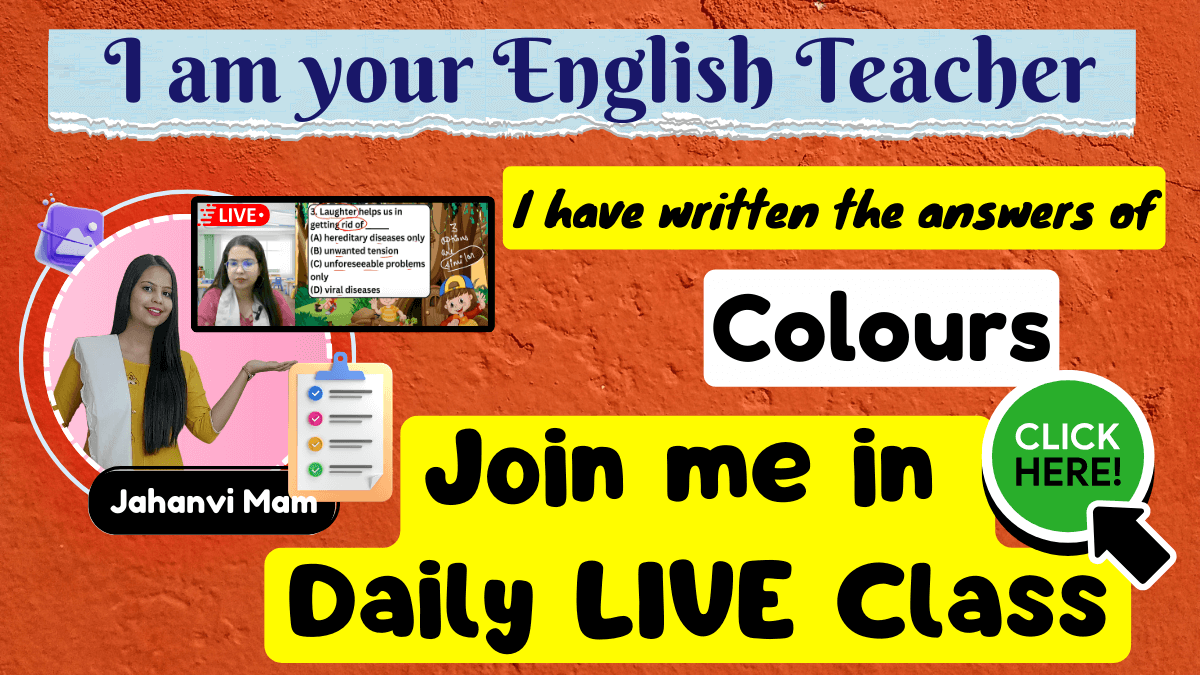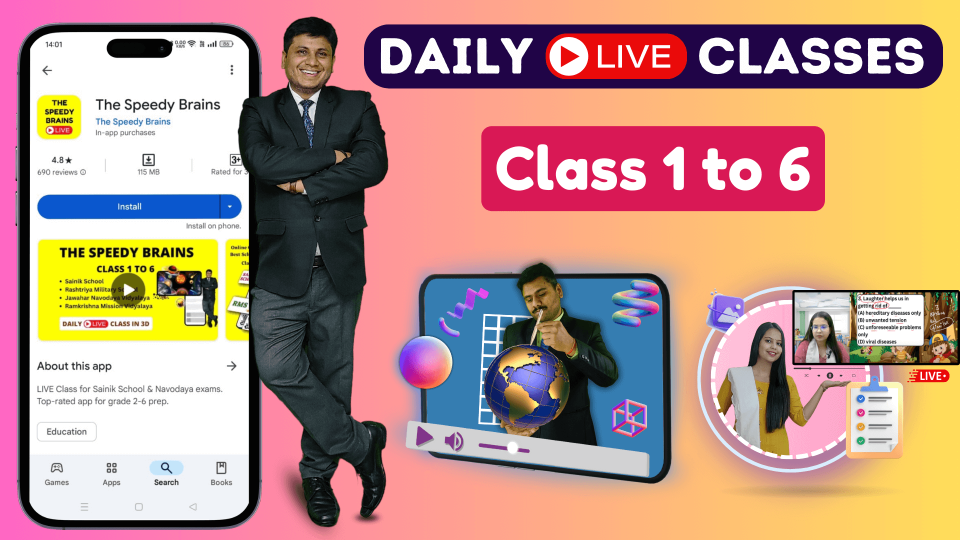Colours - Class 3 English NCERT Solution
The poem Colours from Class 3 English NCERT teaches young readers the value of sharing through a simple and fun depiction of crayons. It highlights how cooperation can make life more vibrant and complete, making it an enjoyable read for children. This page also offers comprehensive solutions, vocabulary lists, and extra questions to deepen understanding of the poem, helping students explore the concept of colors in a meaningful way.
Gist of the Poem in English:
This poem is about two children sharing their crayons. One child has red, yellow, and blue crayons, while the other has green, purple, and black. They realize that by sharing their crayons, they can have a full set of colors to use together.
कविता का सारांश हिंदी में:
यह कविता दो बच्चों के बारे में है जो अपने क्रेयॉन साझा कर रहे हैं। एक बच्चे के पास लाल, पीले और नीले क्रेयॉन हैं, जबकि दूसरे के पास हरे, बैंगनी और काले हैं। वे महसूस करते हैं कि अपने क्रेयॉन साझा करके, वे एक साथ उपयोग करने के लिए रंगों का एक पूरा सेट प्राप्त कर सकते हैं।
Word Meanings
| Sl | English Word | Hindi Meaning | English Meaning |
|---|---|---|---|
| 1 | Crayon | रंगीन पेंसिल | A stick of colored wax used for drawing |
| 2 | Share | बाँटना | To give a portion of something to another |
| 3 | Pack | पैकेट | A set or collection of things |
| 4 | Draw | चित्र बनाना | To produce a picture by making lines |
| 5 | Rearrange | पुनर्व्यवस्थित करना | To change the order or arrangement of something |
| 6 | Hidden | छिपा हुआ | Concealed or out of sight |
| 7 | Aloud | जोर से | In a voice that can be clearly heard |
| 8 | Pronunciation | उच्चारण | The way in which a word is spoken |
| 9 | Repeat | दोहराना | To say or do something again |
| 10 | Sentence | वाक्य | A set of words expressing a statement, question, or command |
| 11 | Action words | क्रिया शब्द | Words that express physical or mental actions |
| 12 | Grid | जाल | A framework of crossed bars or lines |
| 13 | Alphabet | वर्णमाला | The set of letters used in writing a language |
| 14 | Alphabetical order | वर्णानुक्रम | Arrangement of words in the order of the alphabet |
A. Answer the questions. Write your answer in the given space.
1. How many children are there in the poem?
There are two children in the poem. We can infer this from the lines "You have a few crayons" and "I have some too," which indicate two different people talking about their crayons.
2. Why did the children want to share the crayons?
The children wanted to share the crayons so that they could have a full pack of colors. By sharing, they would have access to all the different colors mentioned in the poem: red, yellow, blue, green, purple, and black.
3. How can the children in the poem have a full pack?
The children can have a full pack by sharing their crayons. One child has red, yellow, and blue crayons, while the other has green, purple, and black. By combining their crayons, they will have all six colors, making a full pack.
B. Think and say.
1. The children in the poem shared their crayons. Do you share anything with your friends? What do you share?
This is a personal question for students to answer based on their own experiences. They might share things like toys, books, food, or school supplies with their friends.
2. You have only green, blue and red crayons. Talk in pairs what you would want to draw.
Students can discuss various ideas using these three colors. Some possibilities include: - A landscape with green grass, blue sky, and red flowers or sun - A watermelon with green rind, red flesh, and blue seeds - A traffic light with red, green, and a blue background - A Christmas scene with a green tree, red ornaments, and blue lights
3. Now you have blue, green, red, yellow, brown and orange crayons. What can you draw? Draw here:
This is an activity for students to complete on their own. With these six colors, they could draw more complex scenes such as: - A colorful garden with various flowers and a brown tree trunk - A beach scene with blue water, yellow sand, green palm trees, and an orange sun - A fruit bowl with different colored fruits - A rainbow with the available colors
4. Rearrange the letters to find the hidden colour.
a) LEBU = BLUE
b) LYLEWO = YELLOW
c) RENEG = GREEN
d) RUPPEL = PURPLE
e) NROBW = BROWN
A. Say aloud.
This is a green crayon.
The word green begins with 'gr'.
The word crayon begins with 'cr'.
Now say these words aloud:
gr: green, grey, grass, grapes, grandmother
cr: crayon, crab, crane, crow, cradle
dr: draw, drum, dress, drop, dragon
pr: prince, princess, prize, pray, present
Form a sentence using each of these words and say it aloud.
Students should create their own sentences using these words. Here are some examples: 1. The green grass looks beautiful in the park. 2. I like to draw with my new crayon. 3. The drum makes a loud sound when I hit it. 4. The prince and princess live in a big castle.
B. Have fun!
Here is a fun task for you! Look at the words. Read out the COLOUR but not the words.
For this activity, students should say the color in which each word is written, not the word itself. This exercise helps develop cognitive skills and color recognition.
A. Words used to show actions are called action words. Read the words given below. Circle the action words.
Action words to be circled: laugh, dance, eat, cry, swim, sleep, play, dig, jump, run, write, smile, push
B. Find the action words in the grid below.
The action words to be found in the grid are: walk, yawn, pour, cough, give, see, open, help
Word Friend
Look at these words. Match each word with its friend-word. Write the new word in the space given. The picture clue will help you. One has been done for you:
1. rain + bow = rainbow
2. news + paper = newspaper
3. blue + berry = blueberry
4. book + worm = bookworm
5. basket + ball = basketball
The Speedy Brains APP Download
Over 15000 students from all over India rely on our The Speedy Brains App for their School Exams. 850 Satisfied students have given 5 star review to our Android app on Google Play Store.
- Best Online LIVE Class APP
- Live Class Recordings
- Unlimited Practice Tests
- Previous Year Questions
- 800+ 5star Ratings

